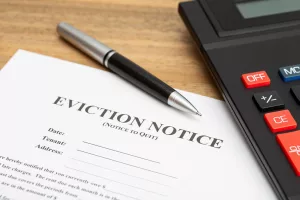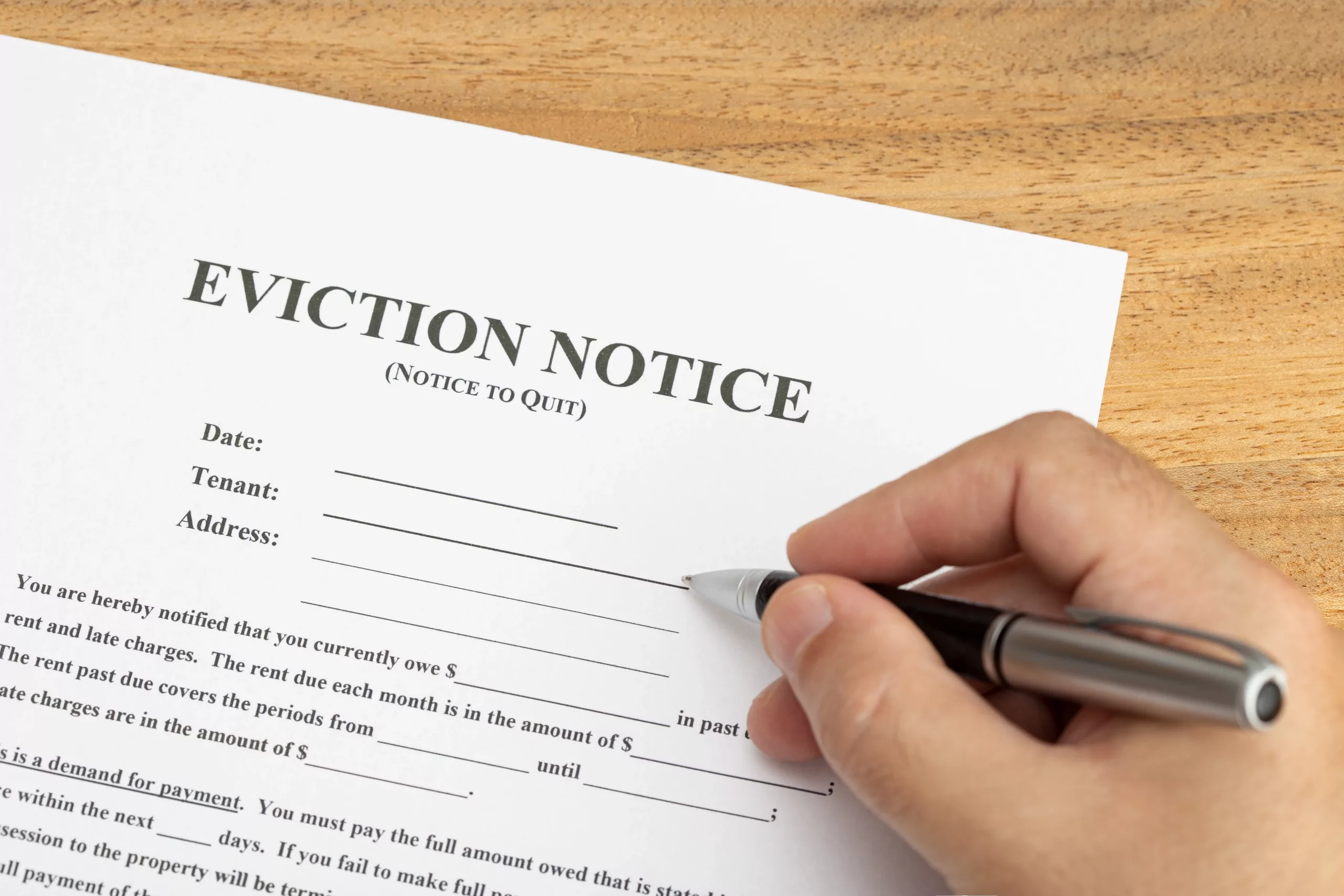Eviction Attorney in Fort Worth, Texas
An eviction can be a stressful situation for both landlords and tenants. Even with the best tenants, you always run into the possibility of an eviction. When this happens, you must understand the legal process and follow it closely.
A Texas landlord must legally terminate the tenancy before evicting a tenant. Knowing what to do and avoid will leave the eviction process running smoothly. If you are considering an eviction, it is highly advisable to seek legal help from our competent Fort Worth eviction attorneys at Girling Law to know what to expect through the eviction process. Call us today or fill up our online form and schedule an initial consultation.
Why Do I Need an Eviction Attorney in Texas?
Even though you may think that it will be easier to simply evict tenants without going through the necessary steps, it is illegal in all states to do a self-help eviction. It is not advisable to take matters into your own hands. There are certain state rules and regulations that you must follow.
Managing tenant evictions is a complicated, yet important aspect of leasing homes in Fort Worth, TX. Understanding the delicate and complex nature of evictions is crucial when beginning the process. A qualified Fort Worth eviction lawyer can help you comply with the Texas eviction laws.
What is Eviction?
 An eviction is a lawsuit filed by a landlord to remove tenants and their belongings from the landlord’s property. In Texas, an eviction is also called a “forcible entry and detainer,” and a landlord cannot remove a tenant from the property without filing such a case. A knowledgeable Fort Worth landlord attorney can help you understand how eviction works.
An eviction is a lawsuit filed by a landlord to remove tenants and their belongings from the landlord’s property. In Texas, an eviction is also called a “forcible entry and detainer,” and a landlord cannot remove a tenant from the property without filing such a case. A knowledgeable Fort Worth landlord attorney can help you understand how eviction works.
A landlord or a property manager can’t evict a tenant without a valid reason. The reasons for eviction will vary based on the type of property you’re renting, how your landlord allows that property to be used, and the eviction laws in your state. The lease or rental agreement will outline the reasons a tenant can be evicted. They may include:
- Failure to pay rent
- Repeated late payment of rent
- Damaging the property
- Behavior that interferes with or inconveniences other tenants
- Using a business property as a residence
- Too many people living in the residence
- Using the property for illegal purposes
- Subleasing to another tenant without permission
What is the Eviction Process?
Chapter 24 of the Texas Property Code discusses eviction and the legal requirements that landlords must comply with. Being armed with the right information can help speed things up when it comes to tenant eviction. Even a single innocent mistake can get your eviction case thrown out, and then you have to start over. This will only delay the process and cost you more money in both fees and unpaid rent.
Eviction proceedings do not mean that a tenant will immediately be removed from their home. There are many steps in the eviction process that each takes a certain amount of time. A reliable Fort Worth eviction lawyer can help understand what you must do to legally evict a tenant. Here are the steps landlords must follow before proceeding with an eviction:
Written Notice to Vacate
The first legal step in the eviction process is to end the tenancy by serving a Notice to Vacate to your tenant. If a landlord alleges a tenant that is behind on rent or has a lease violation, the landlord is required by law to provide the tenant a three-day written notice to vacate the premises. This written notice must be delivered before you can file an eviction suit in court to have the tenant removed.
There are several different types of notices that landlords can serve tenants, depending upon the reason for tenant eviction. The three basic types of eviction notices are as follows:
Pay Rent or Quit Notice
This notice may be sent out if you have missed your rent payment beyond a certain number of days. Landlords give tenants a few days to either pay the rent or quit the lease. If a tenant moves out without paying rent, a landlord can file a lawsuit for the amount of rent owed.
Cure or Quit Notice
This notice generally aims to provide tenants with a chance to rectify whatever violations they made against the lease terms. If the violation is non-payment of rent, for example, the tenant may correct this by settling their rental fees. If you don’t want to or can’t fix the lease violation, the tenant must move out by the deadline given in the written notice.
Unconditional Quit
This is the harshest type of notice to quit. It orders the tenant to move out and doesn’t give them the chance to pay the rent or correct a lease or rental agreement violation. If you receive this notice, it means the landlord is not allowing the tenant to correct the offending behavior or pay back rent. In this case, tenants must leave or quit the lease, although state laws sometimes limit the conditions under which this type of notice may be sent.
Filing of Eviction Lawsuit
If the tenant fails to respond to the Notice to Quit or to rectify their violations of the lease agreement within a reasonable time, the landlord may file an eviction claim in court. You must file your eviction lawsuit in the region where your rental property is located. Filing a Forcible Detainer to remove the tenant requires the following forms:
- Eviction Complaint: This form starts the eviction case.
- Summons: This informs the tenant about the eviction case.
Once the lawsuit has been filed, the tenant must be served with papers at least 6 days before the trial. A sheriff or constable may serve the tenant with papers by delivering them to the tenant or a household member who is 16 or older.
The tenant is not required to file a written answer. They are allowed to do so if they disagree with the claims in the suit. If the tenant did not file an answer, he or she needs to show up to the hearing or risk a default judgment against you and in favor of the landlord. The eviction hearing cannot take place for at least 10 days after the petition is filed and no later than 21 days.
Court Appearance
Once your hearing date is scheduled, the tenant will be notified. This is your opportunity to prove that the tenant deserves to be evicted. Be sure to prepare for the eviction case by gathering all corresponding documentation for the judge or the jury. Prepare a copy of the lease, rent records, eviction notice, or any evidence supporting your claim against the tenant.
Most tenants don’t even show up for the hearing. If they do and you make your case, the judge will rule in your favor. The tenant will then be given five days to vacate your property, and you’ll win a judgment for any outstanding debts. Furthermore, the tenant has the right to appeal the ruling, and if the judge rules against you, you’ll also have five days to appeal.
Writ of Possession
This is the final step in the eviction process. After the mandatory 5-day appeal period is over, and the tenant still refuses to leave your rental property, you can opt to file for a Writ of Possession. Executing a writ of possession is when a tenant and all their belongings and property are removed from the rental unit. It is a court order to the constable to place you in possession of the property.
Call Our Experienced Fort Worth Eviction Attorneys Now!
The eviction process can be lengthy, expensive, and stressful to both landlords and tenants. It may be as simple as the landlord giving written notice to the tenant with an explanation of the eviction and the final date by which the tenant must move out. On the other hand, it may escalate to a legal dispute.
Landlords must carefully follow all the rules and procedures required by Texas law when evicting a tenant; otherwise, the court can refuse to issue an order of eviction. It is always wise to know your rights and obligations under state eviction rules. These rules help ensure that evictions are justified.
If you have any questions about effectively and legally evicting tenants from your rental property, consult our seasoned Fort Worth eviction attorneys at Girling Law as soon as possible. Our legal team can ensure that the eviction process follows the Texas eviction laws. Our landlord law firm is dedicated to helping clients handle all stages of the eviction process in Dallas Fort Worth, North Richland Hills, Frisco, and the surrounding areas. Contact us now and schedule an initial evaluation.

